Congratulations, you’ve made it through January 2017. We can now turn our backs on that inaugural month and all the short lived health crazes that accompanied it. Veganuary and dry january both featured prominently on social media this year, the last vestiges of many new leafs which abounded just a few weeks ago have fallen into the annals of history for yet another year. We’ve already reached peak gym membership 2017.
In this time I’ve been ruminating about diet, health and ‘clean eating’ after it received another bashing in the the wake of the BBC Horizon programme ‘Clean Eating – The Dirty Truth’. In this programme, Dr Giles Yeo explores the world of clean eating from a scientific perspective, to find out what foundations lay, if any, behind the over-exposed Instagram accounts of these cleanliness gurus.
Charlatans.
I found the programme highly divisive and quite partisan in it’s despatching of clean eating. The message was clear, that clean eating is the territory of unqualified, faux-scientific characters with unsubstantiated evidence, if any at all, for their health claims. I felt sad to see miracle cancer cure charlatan Robert O Young lumped in with bloggers like Ella Mills (nee Woodward), because the context of their respective approaches is very, very different.
The crucial difference is that Robert O Young took lots of money from people, claiming he could help them cure cancer using an alkaline diet. He made false claims about his own qualifications, medical knowledge and research history, then charged people large amounts of money to treat them. In contrast, blogger Ella Mills began by writing about her experiences of resolving health issues through dietary changes. One of these people is a criminal more suited to a stint on Crimewatch, the other is a high profile example of how social knowledge and experiences are shared in the digital age.
In the aftermath of this programme there was a braying fervour amongst both the mainstream press and social media in general, eager to dive in and kick clean eating whilst it’s down. People rejoiced in celebrating the death of clean eating, dancing on it’s grave. Some of these demonstrations of smug glee irritated me, as smugness tends to, but they also sparked a thought process, questioning why these protestations appeared so vitriolic? Why were people so overwhelmingly happy to see this diet sideswiped? It didn’t feel like altruistic concern, that’s for sure. Running through this torrential attack on clean eating, I sensed a dense fissure of hypocrisy.
Before I go on, I’d like to make my position clear. Clean eating and wellness are not practices that I subscribe to, if you want to pigeon hole me, then put me in the flexitarian spectrum. I eat meat occasionally, along with fish and avocados, I have a broad, varied diet. Because I’m a food photographer, food blogger and a Food Policy student, I spend all day, every day reading about, writing about, analysing or photographing food. I have a frankly overwhelmingly huge interest in how people perceive food physically, visually and psychologically. That’s why bright sparks of emotion this matter created interest me so much.
Hatchet Job.
Joseph Bullmore, in his haste to tear at any sagging corner of the clean eating tablecloth, speaks in The Spectator of “greasy, lovely, meaty American-style food”. Fair play to Joseph for laying his cards are on the table, but how can we expect anything other than derision for a meat-free diet from a lover of the aforementioned greasy, meaty food. The concept of loving foods that make you feel better could well be lost on someone whose idea of lovely foods have a potentially negative effect on health.
Hence my initial impression that vocal critics were probably ingrained, habitual carnivores, who became outraged when a vegetarian lifestyle was suggested better for you than a diet heavy in red meat, fat, potential heart disease, diabetes and environmental unsustainability.
On the other hand, he raises a valid point about the dichotomous dialogue between clean and dirty eating, how we’ve turned this discussion into a black and white affair. This is true and seen across media in the last decade, from dirty burgers to clean avocados. Logically, this falls into place with our experiences of life, you must have darkness before you can have light, you cannot experience pleasure without knowing what pain is. You can’t have clean unless you’ve experienced dirty. Clean eating’s dirty secret isn’t it’s unsubstantiated foundations, it’s that it’s having an affair with dirty eating.
Yep, clean eating and dirty eating are bedfellows, that is their dirty secret.
Take two seconds to consider it. If you want to erase any trace of ‘clean’ eating then you’d better take your Tipp-ex to ‘dirty’ as well, because all the while dirty food surrounds us, clean food is a given. If there’s any etymologists who could trace the origins of these terms, I’d love to hear the results, because to my knowledge, ‘dirty’ has been used in relation to food far longer than ‘clean’ has. The term clean eating could have easily been born in direct response to the lexicon of dirtiness. Dirty takeaways have featured in the vernacular for longer than I’ve been aware of clean eating.
Once the interlinking of these two terms becomes apparent, then the hypocrisy of berating ‘clean’ eating, then chucking your coat on and heading out for a ‘dirty’ burger becomes all too clear. The two terms go hand in hand and for all we know, clean eating’s roots might be firmly planted in the soil of the dirty food movement.
Clean Eating.
Celebrations over the purported proof that removing gluten from a diet is pointless also struck a chord. Wheat and gluten are not vital parts of a diet and removing them is not harmful if you still receive all the micronutrients you need. Clean eaters who advocated gluten free diets were not necessarily causing harm. Yet, this point, more than any (ok, the sugar debate is similar) seems to outrage people. How dare people remove gluten from their diets?
Conversely, the ‘lovely’ food of dirtiness, red meat, is a probable cause of cancer and when coupled with dirty chips full of saturated fats, can increase cholesterol, leaving you with greater chances of heart disease or a stroke. There’s very good reasons to reduce red meat in your diet, yet the opponents of clean don’t seem particularly concerned with mustering up outrage over that. I suspect these people also had a bad case of selective hearing when Dr Giles Yeo stated in the Horizon programme that “individual clean recipes are no doubt healthy”. Yes, he validated the healthiness of the recipes.
Guilt & Shame.
Pleasure is a vital part of eating, you only need to see those disenfranchised from the enjoyment of food to realise how vital pleasure is to a fulfilling diet. However, eating unhealthy foods simply because you deem them pleasurable is something that should also be considered very closely. Where exactly does the pleasure lie? What is the motivation? Bacchanalian hedonism? Comfort? Greed? Gluttony? Apologies for getting biblical with you, but all of these motivations are shaky ground when it comes to finding happiness in life, none are very well regarded for personal fulfilment.
In an earlier article, Julian Baggini touched on virtue and guilt in The Guardian, a point which can swing both ways. The problem with shame and guilt, especially amongst the British, is that many people don’t know how they work. Inappropriate guilt and shame are bad things, especially if they are propagated from a position of judgement by others. For instance, feeling shame for being gay, or assuming guilt for other people’s feelings are inappropriate and most probably learned from childhood.
On the other hand, feeling a sense of guilt because you’ve just eaten 2500+ calories and half a pint of saturated fat in a slap-up lunch is no bad thing. This is healthy guilt which stops you from repeating it the next day and the day after. It’s up to every individual person to work out if their feelings of guilt or shame are healthy or unhealthy, but a world devoid of guilt is, without doubt, an emotionally unstable environment. A world filled with people shaming others is equally unhealthy. Perhaps clean eating stars invoked shame in some people people, meanwhile, the dirty crowd were so mired in guilt they simply assumed everyone was shaming them. Clean eating made people feel bad, and many didn’t understand if those feelings were right or not. Easier to get rid of them, than face those pesky feelings, eh?
Unscientific.
Back with the BBC Horizon programme, it’s leanings were highly scientific. Science is a good way of proving that things work, especially with empirical data, yet scientific proof, ironically, is not an absolute science. Science can be right, and it can also be wrong, such as with the BSE outbreak in the 1990s. Bovine Spongiform Encephalopathy or mad cow disease rapidly sent vast herds of British beefs completely mad, due to the diet they had been fed. Vast swathes of animals had to be destroyed to rid this disease from our shores. The scientists assured the government and public that this illness could not be passed to humans who had eaten the meat. Then, people started dying from the human version, Creutzfeldt-Jakob disease. The scientists were, sadly, very wrong.
Which is why we should never blankly accept facts, assuming them irrefutable simply because science proved it so. Likewise, it would be unreasonable to use one example, such as BSE, to attempt to discredit the entirety of science-based research. What this proves is that science is not the final word in any matter, especially when it comes to something infinitely more delicate, personal and nuanced, such as how we feel about food and how we individually react to it. It harks back to the earlier point about Ella Mills. She gave up medicine and changed her diet, which made her feel better. Who are we to judge that choice? Who are we to tell people that they shouldn’t not eat gluten? [intentional double negative to demonstrate the futility of the anti-clean brigade.]
Conversely, Robert O Young was judged in a court of law and found guilty. That’s a place where judgements need to be made.
Mr Dirty and Mrs Clean.
I don’t recommend clean eating as a diet choice, equally, I don’t believe that gluten free is the inception of a public health disaster, there are far more important issues than whether someone in SW London is avoiding gluten. Yet it seems to me that both clean and dirty camps have served up their own judgements on this subject, but the ‘dirty’ camp likes to come out fighting. I’m yet to see a high profile article from a clean eating proponent who disregards dirty food with the same level of vitriol that clean eating receives.
What I believe is that when we look closely, dirty food’s beef is not only more vicious, but has a lot more in common with clean eating’s rhetoric than they might care to believe, or ultimately, swallow.

